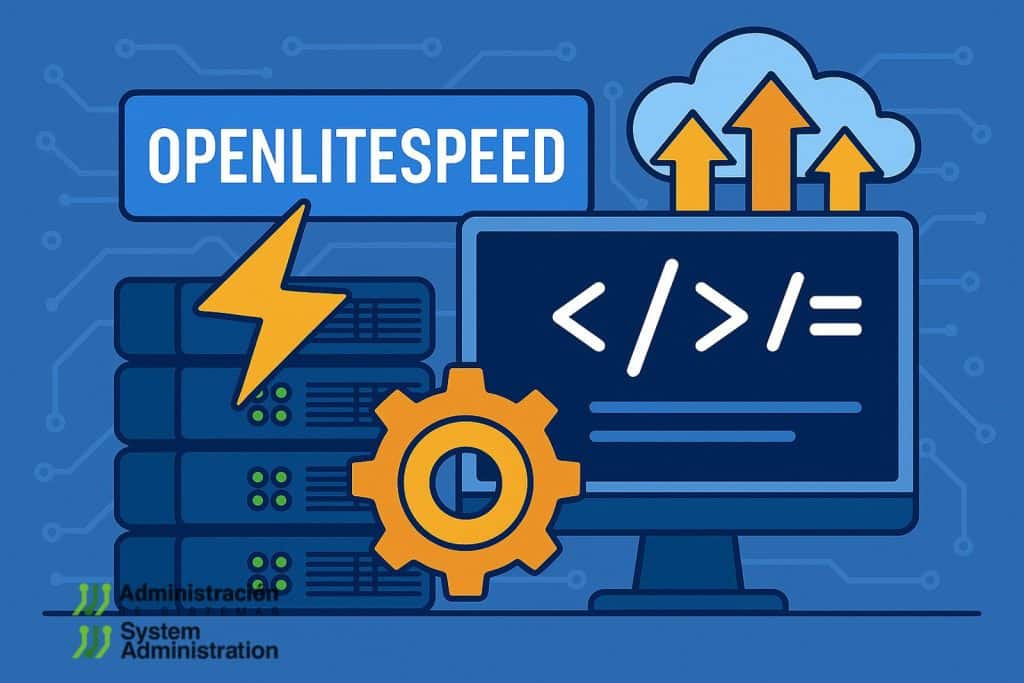In the dynamic landscape of web hosting and Linux system administration, OpenLiteSpeed stands out as a lightweight, high-performance, and open-source web server developed by LiteSpeed Technologies. Designed to deliver modern features with minimal resource usage, OpenLiteSpeed is gaining popularity among sysadmins and developers who need speed, security, and scalability for their web applications.
This article dives deep into what OpenLiteSpeed is, how it works, and why it might be the ideal web server for your next Linux deployment.
What Is OpenLiteSpeed?
OpenLiteSpeed (OLS) is the open-source edition of the LiteSpeed Enterprise web server. While the enterprise version is commercial and includes premium features and support, OpenLiteSpeed offers a robust set of core functionalities for free.
OLS is designed to handle thousands of simultaneous connections using an event-driven, asynchronous architecture, much like NGINX. However, it retains compatibility with common Apache .htaccess directives and supports dynamic content processing through an optimized LiteSpeed Server API (LSAPI) — particularly for PHP applications.
How OpenLiteSpeed Works
OpenLiteSpeed runs as a master process that manages child processes responsible for handling web traffic. It is built in C/C++ and follows a non-blocking event loop, which allows it to manage concurrent HTTP/HTTPS requests efficiently without spawning additional threads for each connection.
Core functional components:
- Built-in support for HTTP/2 and HTTP/3 (QUIC) for faster and more secure web performance.
- LSAPI (LiteSpeed Server API) for executing PHP scripts more efficiently than FastCGI or PHP-FPM.
- Native compression using GZIP and Brotli.
- Advanced server-side caching with LiteSpeed Cache (LSCache) for WordPress and other CMS platforms.
- Graphical web admin interface for configuring virtual hosts, SSL certificates, rewrite rules, and more — no need for external control panels.
Key Technical Features
| Feature | Description |
|---|---|
| Event-driven architecture | Handles concurrent requests with minimal CPU and memory usage. |
| Native HTTP/3 support | Full QUIC protocol implementation for modern web performance. |
| LSAPI for PHP | Highly optimized API for low-latency PHP execution. |
| Apache rewrite compatibility | Supports many .htaccess rules and mod_rewrite syntax. |
| Integrated web admin console | Easy-to-use GUI for server configuration and monitoring. |
| Built-in anti-DDoS mechanisms | Connection limits, bandwidth throttling, and SSL features included. |
| CMS-friendly integrations | Official plugins and presets for WordPress, Joomla, PrestaShop, and more. |
Comparison With Other Web Servers
| Feature / Server | Apache | NGINX | OpenLiteSpeed |
|---|---|---|---|
| Process model | Prefork/Worker | Event-driven | Event-driven |
| HTTP/3 support | Partial | Partial | Full (native) |
.htaccess support | Full | No | Partial |
| Web GUI configuration | No | No (external) | Yes (built-in) |
| WordPress performance | Moderate | High | Very high (LSCache) |
When to Use OpenLiteSpeed
- Optimized WordPress Hosting using the LiteSpeed Cache plugin.
- Low-resource VPS environments needing fast and efficient performance.
- Test/staging servers where fast setup and GUI management are priorities.
- Ecommerce platforms (Magento, WooCommerce, PrestaShop) with high traffic.
- Replacing Apache in panels like CyberPanel, which comes bundled with OLS.
Basic Installation on Ubuntu/Debian
sudo apt update
sudo apt install software-properties-common
sudo add-apt-repository ppa:litespeedtech/openlitespeed
sudo apt update
sudo apt install openlitespeedStart and enable the service:
sudo systemctl start lsws
sudo systemctl enable lswsAccess the admin interface at: https://<server-ip>:7080
Conclusion
OpenLiteSpeed is an excellent choice for system administrators and developers who need a high-performance, open-source web server for Linux. Its modern architecture, ease of management, and tight integration with PHP-based applications make it ideal for dynamic websites, content-heavy platforms, and eCommerce.
Thanks to native support for HTTP/3, compression, caching, and its built-in admin console, OLS reduces complexity while delivering top-tier performance — all without licensing fees.
Whether you’re building a WordPress-optimized VPS, configuring scalable infrastructure, or looking for an alternative to Apache or NGINX, OpenLiteSpeed deserves a place in your sysadmin toolbox.

